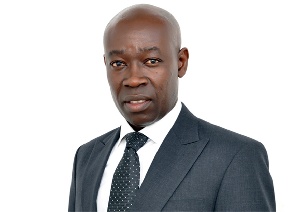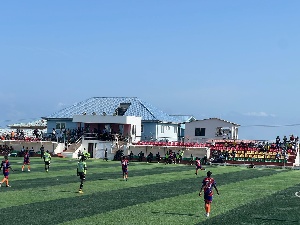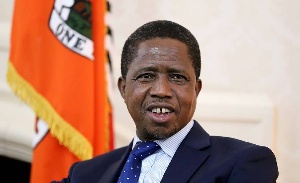- Home - News
- Elections 2024
- News Archive
- Crime & Punishment
- Politics
- Regional
- Editorial
- Health
- Ghanaians Abroad
- Tabloid
- Africa
- Religion
- Photo Archives
- Press Release
General News of Friday, 28 March 2025
Source: www.ghanawebbers.com
To Thine Own Self Be True –Let The Law Work
**Mr. Thaddeus Sory, a Legal Luminary**
On Tuesday evening, March 25, 2025, social media reported that the President of Ghana forwarded three petitions for the Chief Justice's removal to the Council of State. This action is required by Article 146(6) of the 1992 Constitution. It states that when removing the Chief Justice, the President must consult with the Council of State.
The President must appoint a committee consisting of two Supreme Court Justices and three other individuals who are not part of Parliament or lawyers.
Two days later, on Thursday, March 27, at 9:20 AM, Hon. Vincent Ekow Assafuah filed an action at the Supreme Court. He challenged the President’s referral of these petitions to the Council of State.
Mr. Assafuah claims that under several articles in the Constitution, including Articles 146(1), (2), (4), (6), and (7), the President must notify the Chief Justice about her removal petition. He argues that she should provide comments before any referral to the Council of State.
This raises several questions:
- How did Mr. Assafuah know within one day that there was no consultation?
- Did the Chief Justice inform him directly?
- Was there any media report confirming this lack of consultation?
As his lawyer Godfred Dame suggests, “this is neither a jigsaw nor a puzzle.” Things seem to be falling into place.
Only Article 146(6) is relevant here regarding whether consultation was needed before referring to the Council of State. This article clearly states that for a Chief Justice removal petition, consultation with the Council is mandatory.
In Agyei Twum v. Attorney General & Akwetey, Justice Date-Bah stated that a prima facie case must be established against the Chief Justice before forming an investigative committee. However, this case did not specify how to determine prima facie status.
What is clear is that consulting with the Council of State is necessary. The President's decision to refer these petitions complies with constitutional requirements.
Several questions arise about this lawsuit:
- If it’s constitutional for referrals to occur as stated in Article 146(6), can it be deemed unconstitutional?
- Isn’t referring these petitions a logical first step in determining prima facie status?
- Shouldn’t consultations happen instead of unilateral decisions by the President?
Does referring these petitions imply a prima facie determination without hearing from the Chief Justice? Does this referral prevent her from commenting later?
In response to one petition, former President’s remarks suggested prior consultation occurred before determining no prima facie case existed against her. Yet, there’s no indication in correspondence with Prof. Azar that she was consulted beforehand.
The Chief Justice believes in upholding legal standards without presumptive protection; every Ghanaian shares this belief in lawfulness. The law mandates presidential consultations with the Council of State; such discussions are ongoing now.
To Proxy Assafuah: consider Acts from Apostles as guidance. In Acts 5, Peter faced intimidation but continued preaching despite threats without seeking legal recourse.
When arrested and brought before High Priest Gamaliel for judgment, he advised caution against acting hastily against them based on past failures like Theudas and Judas.
Gamaliel wisely said: “If their counsel or work be of men, it will come to nought; but if it be of God... you cannot overthrow it.”
So let it be known: leave those petitioners alone! If their cause lacks merit or divine backing, their efforts will fail; if just and true—no court can dismiss them unjustly.
By Thaddeus Sory
Entertainment










